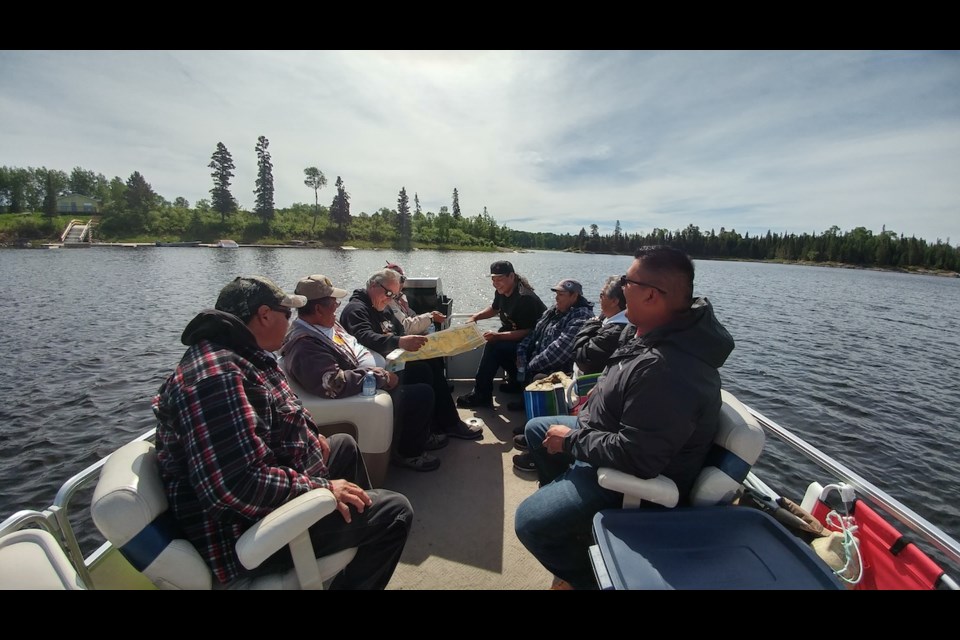Researchers from engineering and arts at the University of Guelph have teamed up to help better understand how development, altered water level patterns and climate change have created a food desert along a part of the Winnipeg River, and how these influences are hampering wild rice production by Indigenous harvesters there.
Professors Andrea Bradford, School of Engineering; and Brittany Luby, College of Arts, along with graduate student Sam Mehltretter and undergraduate student Emma Stelter are working with Ochiichagwe’Babigo’Ining Ojibway Nation (OON) in northwestern Ontario just north of Kenora, where the Winnipeg River flows from Lake of the Woods toward Hudson Bay. The region is home to Luby’s paternal ancestors.
OON is looking to Bradford and Luby to analyze flow data, conduct and transcribe Elder interviews about the historical availability of traditional foods, and determine whether indigenous foodstuffs can be revitalized in the district.
“Through this partnership, we hope to mitigate the negative impacts of contemporary water management and co-develop a plan to revitalize Indigenous crops,” says Luby. “Ontario and Indigenous nations need to find a new way to battle food insecurity in the industrialized drainage basin.”
Luby, a historian, has worked with OON since 2007, analyzing the socio-cultural effects of Whitedog Falls Generating Station on Anishinaabe families. Bradford specializes in the eco-hydrology of streams and wetlands, and mitigating the effects of development on these systems. She has provided expert testimony on the impacts of development on water resources at Ontario Municipal Board and Environmental Joint Tribunal hearings. Now, the researchers have partnered with OON’s Economic Development Committee, which creates growth opportunities on reserve.
Here’s the background:
In the late 19th and early 20th centuries, members of OON thrived along the Winnipeg River. With its thousands of miles of irregular shoreline, it provides ideal spawning ground for fish. Lean protein was complemented by complex carbohydrates – specifically wild rice, known by nation members as manomin, Ojibwe for spirit berry.
At the height of production, about 500,000 lb of manomin was harvested. But through the 1950s, hydroelectric development, mill expansion and raw sewage pouring directly into the river compromised community health. Food fish populations like sturgeon declined.
By the late 1970s, pollution and food scarcity led to the almost complete abandonment of OON. While the Anishinaabe have reoccupied OON, traditional foods remain scarce, upsetting the ecosystem. “You got all sorts of bugs… that feed off the wild rice. The birds come in and they eat the insects. So, it’s a chain reaction,” says OON Elder Clarence Henry.
Adds Elder Archie Wagamese: “Even now – all our beavers are dying. Muskrats. Ducks.”
Band members associate the construction of the Norman Dam (circa 1900) and Whitedog Falls Generating Station (circa 1955) with food insecurity on reserve. They believe water regulation prevents OON from harvesting manomin, which is extremely sensitive to fluctuating water levels, and from running a food fishery. “Wild rice harvesting is a treaty right,” says Elder Terry Greene, noting Clause 11 of the Paypom Treaty reads “The Indians will be free as by the past for their… rice harvest.”
Earlier this year, Luby and Mehltretter visited OON to discuss preliminary research findings with community members. While on site, they participated in traditional manomin processing. They returned to Guelph with wild rice to process with students.
Through collaboration with the Aboriginal Resource Centre (ARC), student-processed wild rice was prepared in a soup by the university’s Hospitality Services and shared for lunch at ARC.
